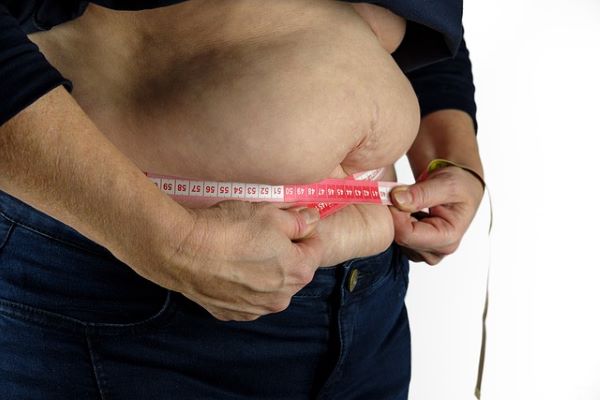In recent years, research has increasingly shown that gut health plays a crucial role in overall wellness, including weight management. Often referred to as the “second brain,” the gut is home to trillions of bacteria that influence digestion, immunity, and even mood. But did you know that these gut microbes also play a significant role in weight loss and how your body processes food?
Understanding the connection between gut health and weight loss can empower you to take control of your health. In this article, we’ll explore how gut health influences weight, the types of bacteria that promote weight loss, and tips for improving your gut health naturally.
Also, read: How to Break Through a Weight Loss Plateau
How Gut Health Affects Weight Loss
The digestive system is home to diverse bacteria, fungi, and viruses collectively known as the gut microbiome. These microorganisms are not just passive bystanders—they help regulate how efficiently the body processes food, absorbs nutrients, and stores fat. The composition of your gut microbiome can directly influence your metabolism and energy balance.
Here’s how your gut health can impact weight loss:
1. Gut Bacteria and Metabolism
The gut microbiome plays a pivotal role in metabolism, determining how many calories and nutrients your body absorbs from food. Certain bacteria are more efficient at breaking down fiber and extracting calories, which may lead to weight gain in some people. On the other hand, a diverse and balanced microbiome supports better metabolism and can help promote weight loss. (Source)
2. Inflammation and Weight Gain
An imbalanced gut, known as dysbiosis, can lead to chronic low-grade inflammation. When harmful bacteria outnumber beneficial bacteria, the gut lining can become compromised, leading to conditions like leaky gut syndrome. This increases inflammation in the body, which is linked to weight gain, especially in the abdominal area. Improving gut health can reduce inflammation, making it easier to lose weight. (Source)
3. Gut Health and Appetite Regulation
Gut bacteria produce chemicals like short-chain fatty acids (SCFAs) that can influence hormones related to hunger and satiety. For example, SCFAs can boost the production of peptide YY (PYY) and glucagon-like peptide-1 (GLP-1), both of which help you feel full. A healthy gut supports balanced hunger hormones, which can help you manage food cravings and avoid overeating. (Source)
4. Microbiome Diversity and Weight Loss
A diverse gut microbiome is associated with better weight management. Studies have shown that people who are overweight or obese tend to have less diverse gut bacteria than those with a healthy weight. Fostering a variety of gut bacteria may improve how your body handles energy and fat storage. (Source)
Types of Gut Bacteria Linked to Weight Loss
While the gut is home to thousands of different species of bacteria, certain ones have been linked to better weight regulation. Here are the key players:
1. Bacteroidetes
This group of bacteria is commonly associated with lean body mass. Bacteroidetes are efficient at breaking down fiber and producing SCFAs, which help regulate metabolism and appetite.
2. Firmicutes
While Firmicutes can help with digestion, an overgrowth of this type of bacteria is often linked to obesity. A healthy balance between Firmicutes and Bacteroidetes is essential for weight management.
3. Akkermansia muciniphila
This beneficial bacterium helps maintain a healthy gut lining and reduces inflammation. Higher levels of Akkermansia have been associated with lower body fat and improved metabolism.
4. Lactobacillus and Bifidobacterium
These are probiotic bacteria commonly found in fermented foods. Studies have shown that Lactobacillus and Bifidobacterium can aid in weight loss by improving digestion, reducing inflammation, and promoting healthy metabolic processes. (Source)
Tips for Improving Gut Health to Support Weight Loss
Maintaining a healthy gut microbiome can be a powerful tool in your weight loss journey. Here are some tips to naturally improve gut health:
1. Eat a High-Fiber Diet
Fiber is essential for feeding the beneficial bacteria in your gut. Foods like fruits, vegetables, whole grains, and legumes are rich in fiber and help promote the growth of good bacteria. Aim for a variety of fiber-rich foods to increase microbial diversity.
2. Incorporate Fermented Foods
Fermented foods like yogurt, kefir, sauerkraut, kimchi, and kombucha are rich in probiotics, which help populate your gut with beneficial bacteria. Regular consumption of these foods can support digestion and aid weight loss.
3. Avoid Processed Foods and Sugars
Processed foods, refined sugars, and artificial sweeteners can disrupt your gut microbiome and promote the growth of harmful bacteria. Limiting these foods in your diet can help improve gut health and support weight loss.
4. Stay Hydrated
Drinking plenty of water is essential for digestion and the health of your gut. Water helps flush out toxins and supports the proper functioning of the digestive system. Staying hydrated also promotes regular bowel movements, which are important for maintaining a healthy gut.
5. Consider Prebiotics
Prebiotics are fiber that feeds the good bacteria in your gut. Foods like garlic, onions, leeks, asparagus, and bananas are natural sources of prebiotics. Incorporating prebiotic foods can help nourish your gut microbiome and support weight loss.
6. Get Regular Exercise
Physical activity has been shown to affect the composition of the gut microbiome positively. Exercise can increase microbial diversity and promote the growth of beneficial bacteria, which can help with weight management.
7. Manage Stress
Chronic stress can negatively impact your gut health by disrupting the balance of bacteria. Practicing stress-reducing activities like meditation, yoga, or deep breathing can help maintain a healthy gut and improve weight loss outcomes. (Source)
Conclusion
The connection between gut health and weight loss is clear: a healthy, balanced gut microbiome can support better metabolism, reduce inflammation, regulate appetite, and aid in fat loss. By making small, sustainable changes to your diet and lifestyle—such as eating more fiber, incorporating fermented foods, and managing stress—you can improve your gut health and enhance your weight loss efforts.
Take care of your gut, and it will take care of you on your journey to a healthier, leaner body.





